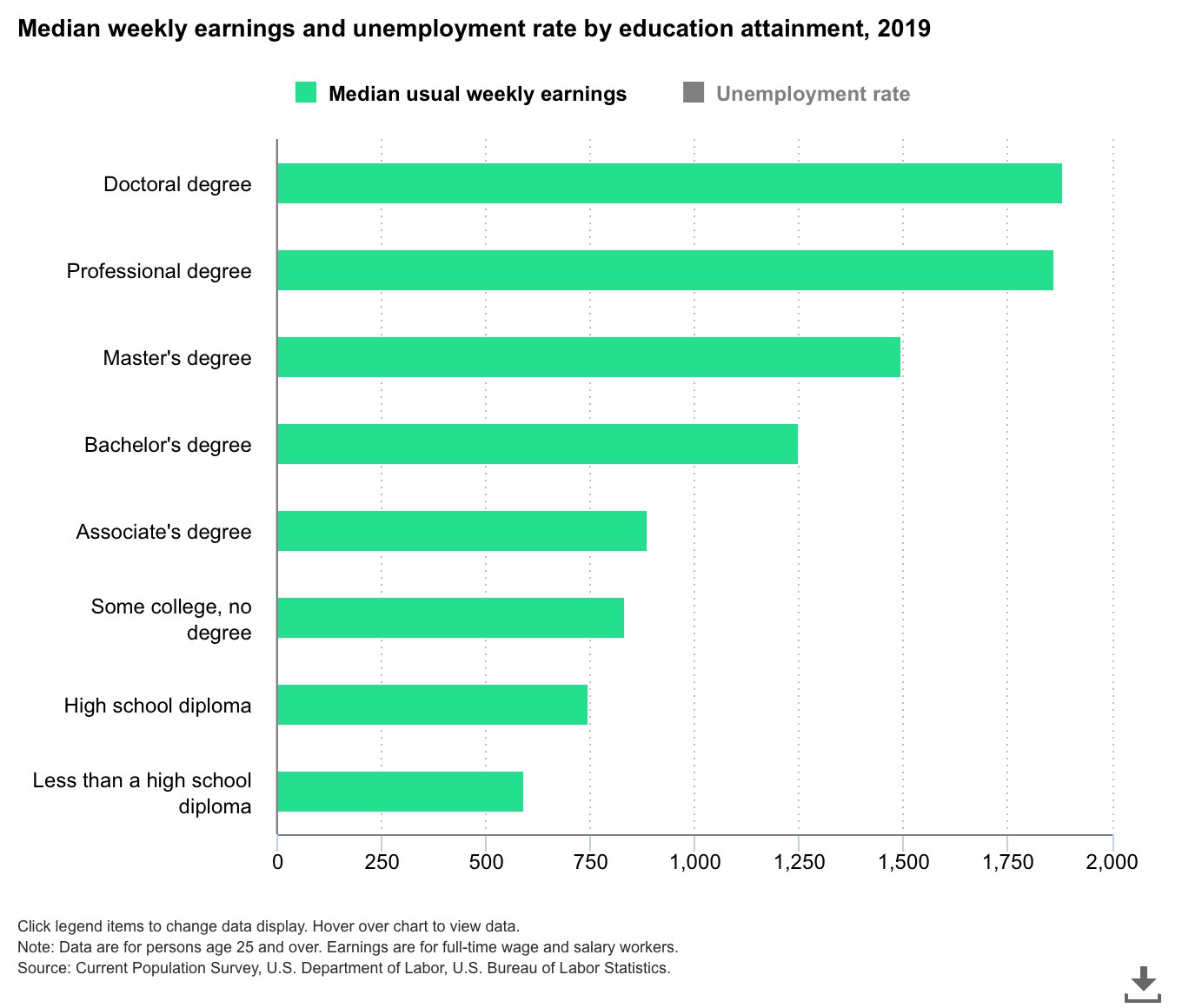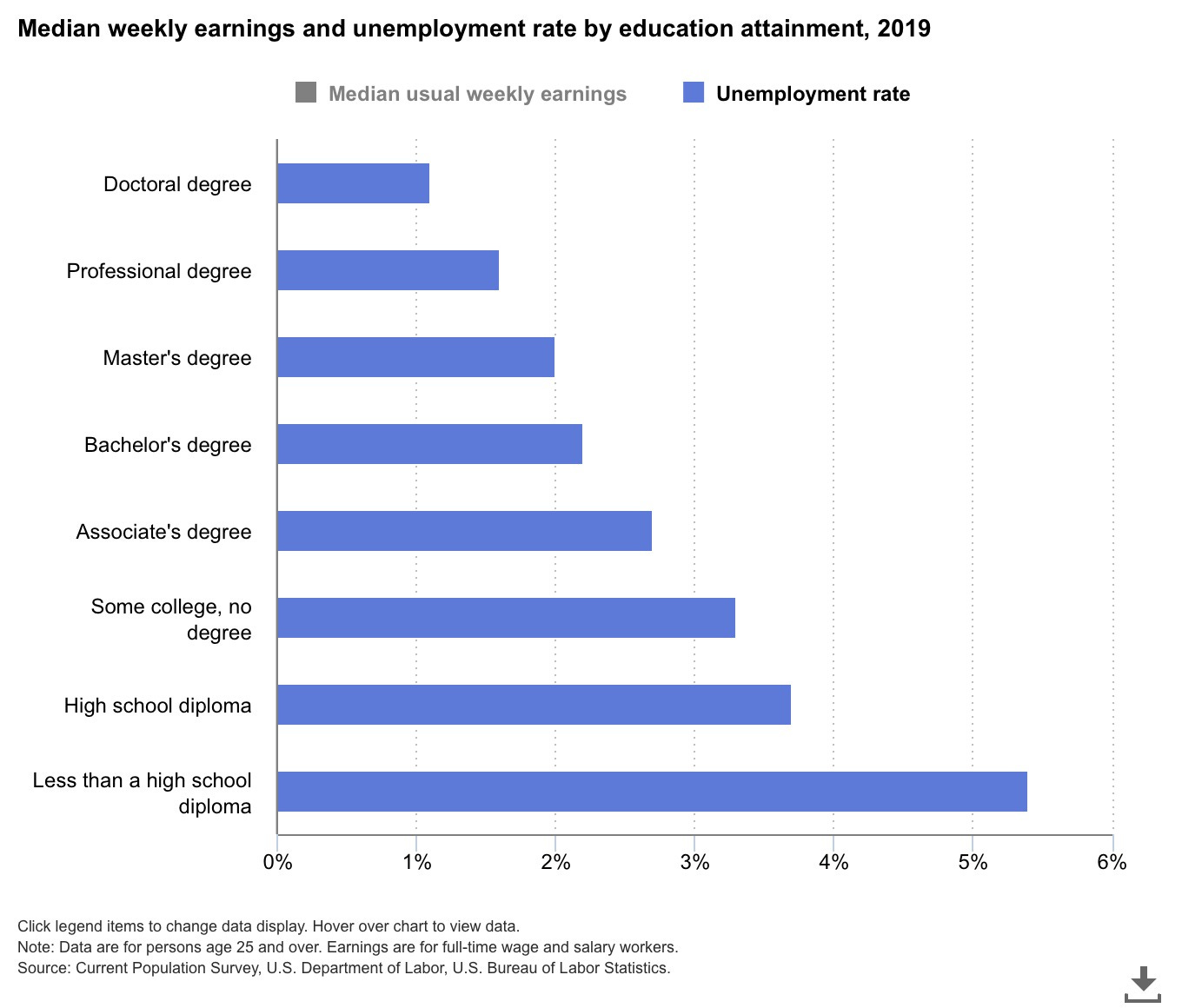What (Are) You Gonna Do About Unemployment?
Long term solutions to combat unemployment, part 1
In earlier posts, we started talking about the labor market. To start this year’s (2025) Thursday Classroom, I’ll continue that discussion. You might want to look at the last two posts before you start. They are Who You Gonna Call? and What (Are) You Gonna Do?
Please keep in mind that I’m looking at unemployment from a macroeconomic or big-picture perspective. I know that finding work can be a difficult and painful process.
How Moving Can Help
My husband and I had very portable jobs skills. I could move from one economics teaching position to another. He could move from one software engineering position to another. Neither of us would have needed much added training We would have needed to learn new learning processes and company culture, but we could do that.
So, when a position came open in Seattle, WA for a big tech firm, we were curious but not interested. My first reaction: “Isn’t that on the other side of the country?”
Moving everything we had, including kids and pets, to the other side of the country seemed impossible. The idea of selling our belongings and buying furniture and books was overwhelming.
And we had family ties along the eastern side of Atlanta.
We are not alone.
Most Americans balk at moving long distances to find work. But there are plenty who do.
A friend of ours moved to Portland, OR hoping to kickstart his business. Our oldest son moved to Oakland, CA looking for new job opportunities. No kids, no pets, no spouse. Geographic mobility is one way to improve long-term job market and economic success.
We didn’t need to move, but for younger workers moving to where the jobs are is an ideal way to start a career.
Remote work is a bonus for some workers, and is what’s done in some industries, like writing. I edited this post in Oxford, GA, while in a writing sprint on Zoom with writers calling in from IL, OH, NC, and TX.
But most of us can’t count on remote work. Most businesses now insist on some in-person work. And, if you’re in retail or personal services, you need to be where the job is. You can’t repair someone’s deck unless you’re at their house.
Achieving greater geographic mobility among workers, via actual moves or remote work is one way to combat unemployment over time. However, the older the worker is the less likely they will be to move. Family responsibilities often keep them in place. [1]
So, let’s look at other long-term solutions for reducing spells of unemployment.
Reducing spells of unemployment
One way to reduce the damage to households caused by unemployment is to reduce the possibility of unemployment. Another way is to decrease the length of unemployment spells over time, so that households can recover lost wages and wealth.
Studies have shown that the best way (for most of us) to reduce the probability of unemployment is through education.
According to National Center for Education Statistics and BLS data the more education a worker receives, the lower the likelihood of being unemployed in the first place. The probability of being unemployed at some point in a worker’s life is 5.4 percent for those without a college degree and 2.8 percent for is those with college degrees. [2]
Evidence from BLS data suggests lower education increases the probability of a first-time long unemployment spells. That means not only are those with less education experiencing higher unemployment rates, but also the time spent unemployed is longer. There is other evidence showing a relationship between lower education attainment and more time out of work for illness and earlier retirements.
So, spending more time getting an education pays off.
During the 1990s, there was a big push to get students to complete high school. Since the beginning of the twenty-first century, there has also been another push to get high school students to enroll in and complete a college degree.
But college isn’t for everyone.
What about high school graduates who are a poor fit for college?
They also have options.
Currently, there are three choices to offset a college education. The military offers ways to train high school graduates who may not be a good fit for college or may have trouble paying for college. Many of my returning students at Clayton State were former military.
Another way is specialized training. This often requires a certificate of some sort or on-the-job training. Examples include pharmacy technicians, cosmetology, HVAC, and culinary training. The third possibility is apprenticeships.
Apprenticeships are most useful in skilled trades, such as plumbing, carpentry, and electrical work.
While common in parts of Europe, apprenticeships had been less common in the US, and more likely for college graduates, especially in law and medicine. The is also true in the publishing profession as employees rise from editorial assistant to senior editor. [3]
In next week’s post, we’ll take a deeper look at apprenticeship programs in the US. Plus, I’ll share with you what happened to our intrepid travelers.
Thank you for taking the time to read this.
Nikki
If you have friends who might be interested in reading my work, please forward this post. Thank you.
[1] On a humorous note: A friend of ours decided to buck that trend by uprooting his wife and kids, without telling his wife. He found an opportunity in Huntsville, AL and decided to take it. Huntsville is only 220 miles from Atlanta, but his wife didn’t talk to him for three days.
[2] It falls to 1.5 percent for those with professional degrees such as an MD and 1.7 percent for those with a PhD. Data from BLS.gov, Career Outlook Report, Dennis Vilorio, 3/2016. Accessed 6/14/2023.
[3] Women in Publishing interview with Sara Sargent, Executive Senior Editor with Random House Children’s Books.






After I was laid off in 2015 from my job as editor of a daily newspaper, I never found another good FT job. I have a college degree, a solid work record, sterling references, etc. It just never happened no matter what I tried. Eventually, I had to give up. It was a complete waste of my time. Customizing your resume and cover letter for each job, making online accounts for each potential new employer, updating LinkedIn, networking and networking ... it took a lot of time. Instead, I started writing books. I picked the most popular genre and used a pen name. I didn't make enough, so I started writing on Medium and then Substack and switched to writing books under my own name. I had a great 2024, although it will be tough to pull that off again. But I'm making a lot more than I did just endlessly applying for jobs.